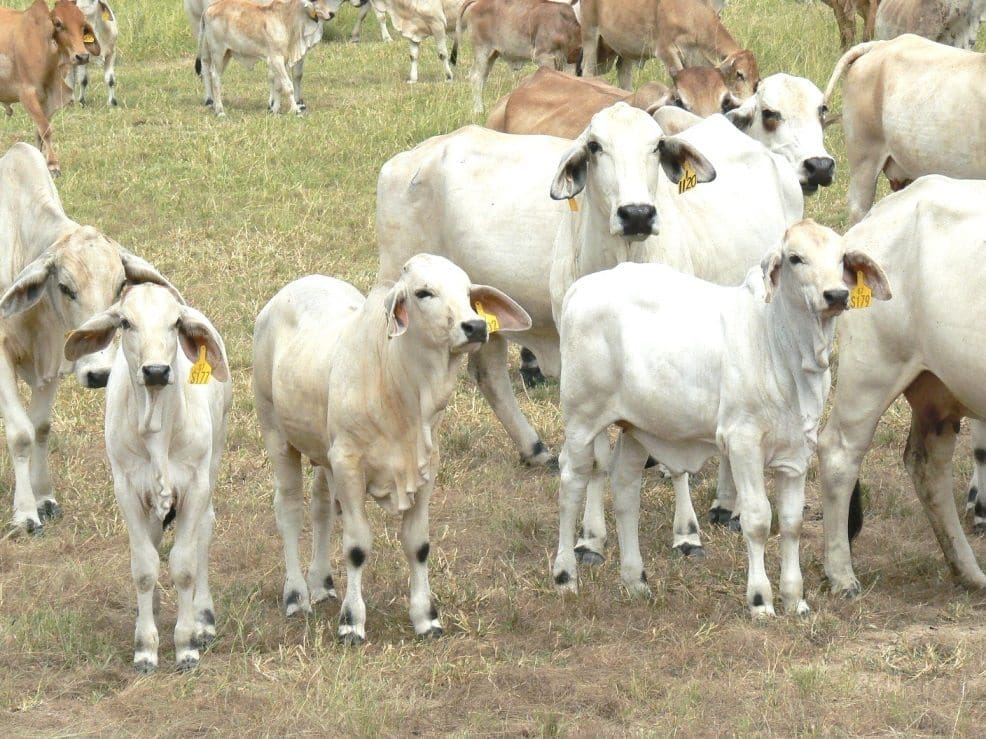
WHILE best practice advice suggests phosphorus supplementation in parts of northern Australia deficient in the trace mineral should start at weaning, new research shows it’s never too late to start a supplement program to gain impact.
The research conducted by Tim Schatz and others from NT Department of Industry, Tourism and Trade found that the performance of previously unsupplemented mature cows at Kidman Springs in the Victoria River District improved rapidly when P supplement was started.
Results from the project were delivered during the Association of Animal Science conference in Melbourne last month.
Phosphorus deficiency (see map of Australia displaying affected areas) reduces the growth and reproductive performance of cattle, but supplementation can greatly increase the productivity and profitability of cattle enterprises in deficient country.
Currently, little is known about how long it takes for the performance of P-deficient mature cows to improve once they start to receive supplement, or whether their long-term performance is impaired by P deficiency earlier in life.
Brahman cattle run on the Victoria River Research Station in the Northern Territory were used as the basis for the original trial, comparing females receiving P continuously from weaning, to those that never received any supplement.
At the conclusion of the original study in 2019 when the cows were 5.5 years old, 42 cows were randomly selected from each treatment group and grazed together in the same P-deficient paddock for three years.
The received supplement containing P year-round, and performance attributes were measured twice each year (see table).

The results showed that the performance of P-deficient cows improved rapidly after P supplementation was started, and in fact within a year was similar to cows that had been fed P from weaning during the earlier trial.
However P-deficiency earlier in life did have some residual stunting effects, resulting in lower mean hip height and liveweight among the P-deficient cows.
The table above indicates mean annual liveweight production (change in cow weight plus weaning weight of any calves produced) in the three years prior to May 2019 was significantly higher in the P+ group (121.7kg vs 83.6kg). However in the three years after May 2019 when all the females received supplement, the difference was not significant (131.9kg for the P+ group, 142.3kg for the P- group).
The pregnancy rate in lactating cows was 53pc higher in the P+ group in May 2019, but the differences between treatments was not significant in the following three years. By May 2021, 83.3pc of the lactating previously supplemented group were PTIC, with the previously unsupplemented group at 82.1pc.
While the mean liveweight of the P+ cows remained heavier over the three years post-2019, the difference between treatments groups diminished.
This was likely because the body condition scores of the P- cows improved after they started receiving P supplement, but that some stunting of P- cows had occurred prior to May 2019.
The difference in mean hip height (measured in cm) between the treatments was similar in May 2019 and May 2022, while the mean body condition score of the P+ cows was higher than the P- cows in May 2019, but by May 2022 there was no difference.
“The answers to these questions were not previously known, but are of interest to producers in P-deficient country who have not supplemented previously and want to know how long it will take before they see a return on their investment in P supplementation,” project leader Tim Schatz said.
“While the trial showed that it is never too late to start feeding P supplement, the previous research showed that it is better to start P supplementation from weaning onwards, as there are large benefits from doing so,” Mr Schatz said.
The original P trial at Kidman Springs showed that supplementation in P deficient country gave a spectacular 700pc return on investment.
